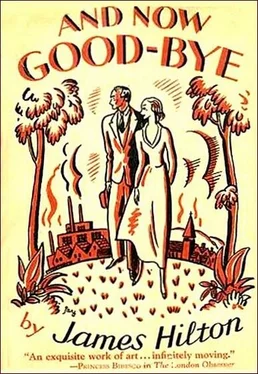“Oh, I know. And you know, too, apparently. We both know.” She laughed.
“I suppose you’ve carefully looked into the financial side of it all?”
“So carefully and so often that I know it by heart. I can live in Vienna—not luxuriously, of course, but then I wouldn’t want to—on a hundred and fifty or so a year. Living’s a little cheaper than it is in England. At the end of six months, if I show promise, the school may grant me a scholarship, and I might also be able to get a few outside pupils. I’ve saved up exactly a hundred and eighty-seven pounds during the past six years, so I can afford at least twelve months at the school, even as an experiment.”
“What if the experiment doesn’t succeed?”
“Then I’ll at least know that I’ve had the chance and failed.”
“You may find yourself back in England penniless and without a job.”
“Possibly. But I’ll manage somehow—I can typewrite and do shorthand, card-indexing, and all that sort of thing. I shan’t need to go back to Browdley.”
“It’s taking a big plunge.”
“I know.”
“And you’re not afraid of doing it?”
“I’m more afraid of not doing it. I’d be afraid of looking back when I’m older and wishing I’d had the nerve when I was young.”
Howat rose abruptly from his chair, picking up the bill that the waitress had placed on the table. “Shall we go?” he said, smiling. “By the way, where are you staying in London?”
“With friends in South Kensington. Till to-morrow. I’m off in the morning.”
“To Vienna?”
“Yes. It’s the middle of term, but I think they’ll probably let me begin. If not, I’ll just wait there till next term.”
He paid the bill downstairs and walked with her into the street. The crowds and traffic had not noticeably subsided in the interval. He reached the kerbside with her; they had neither of them spoken since leaving the shop; and he thought, as he stood there: Shall I say good-bye and wish her luck, or shall I continue an argument that hasn’t the slightest chance of making her alter a single one of her intentions? Finally he adopted neither course, but said, altogether on impulse: “It just occurs to me that I’m feeling hungry. I haven’t had anything to eat since my lunch on the train this morning. What about your own plans? Are you doing anything particular this evening?”
“There was a violin concert I wanted to go to.”
“The one at the Cavendish?”
“That’s it. How did you know?”
“I saw it advertised and rather thought of going myself.”
“Then let’s go together after we’ve had some food somewhere.”
“That sounds a very happy suggestion.”
“I know a place in Soho, quite good and not expensive.”
“Splendid. We’ll go there.”
“It’s near Regent Street. If you’re hungry we’d better take a bus and go there now.”
They crossed the road and waited for a Regent Street bus, but it was full inside and they had to climb to the roof, which was open to the sky and the cold wind. Yet something in that arctic elevation gave all Howat’s perceptions a renewal of acuteness; once again he was caught up in swirls and eddies of enchantment, and as he felt her small tense body at his side, he knew that finding out the real truth about her had set a dizzying crown upon his happiness. She was pure and good; that was everything; and her purity merged with the new hopefulness of his own future into a single celestial harmony. He could not be quite sure how it all fitted in, but he felt, during that short tingling journey: There is nothing wrong with me, in the way I feared, and there is nothing wrong with her, in the way I feared. We are both all right, and the whole world is all right…and the more he thought about it, the more marvellous that simple discovery seemed to him. In the ever-changing pattern of lamplight he observed her profile, the delicate little chin cushioned serenely in the fur collar, the bold slope of the forehead under the close fitting hat—it was a pure profile, he thought, matching her in other ways, too—it looked so eager, intent, and not to be deflected. There was something in the way she stared ahead that put him in mind of a rather lovely figurehead of a ship.
But he still felt it somehow his duty to persuade her to return to Browdley, even though he knew the futility of the attempt. The Vienna idea seemed to him quite hopelessly impractical; even her friend Isaac had not been encouraging. Howat felt that he ought, at least, to stress the uncertainty of it, the risks of ultimate disappointment and failure. On the other hand, he reflected, she knew all the risks quite as well as he did; she was walking into them with her eyes open; and then, glancing towards her momentarily, he saw her as the living symbol of an attitude—that attitude of knowing and taking risks with eyes wide open. And it was an attitude which suddenly, by sheer loveliness of appeal, broke down his last misgiving, so that he said, there on that bus-top, just the opposite of what he felt he ought to say and just the essence of what he felt; he said, stooping a little to her: “My dear girl, I’m going to give you some advice which may rather surprise you. You go. Go to Vienna. Take your chance. Work hard, and may God be with you and reward your courage!”
She turned to him with a look of eager, startled friendliness, clutching his arm meanwhile like an excited child. “Thank you—thank you very much,” she said simply, and he responded—“Oh, no, no—” and held her gloved fingers for a fraction of a moment in his cold hand. Her instant response to his benediction had filled him with overmastering ease of mind; he had done right, he was certain now, and he could even feel a touch of that priestly serenity he had so often imagined and envied. “But I do thank you,” she insisted, and he could only repeat-“-Oh no, not at all…” His head was full of a divine singing, and all he could think of again was the astonishing rightness of himself, herself; and of all the world.
She had said the Soho restaurant was not expensive; but it was, in fact, like most Soho restaurants, cheap if you picked out the very cheapest things, but fairly expensive to the person who asked for just what he wanted. Howat, sitting down at the small table and studying the bill of fare, did not feel in any mood to make intricate mathematical calculations. He was never very competent with money; if he had been alone he would doubtless have had eggs on toast in a Lyons shop for cheapness’ sake; but, on the other hand, if Lyons had grossly overcharged him he would never have noticed it. So that, though he stared hard at the items on Barroli’s comprehensive list, they conveyed little to his understanding—three and six for poulet en casserole seemed to him neither more nor less outrageous than a hundred pounds for a heating apparatus. Nor, apart from the prices, did he peruse very intelligently; he knew French, but to know French is not always to know the identities of dishes in a Soho restaurant owned by an Italian. Two things, however, supervened immensely above all his perceptions; he was hungry, and the world still retained its extraordinary attributes of perfection. As he gazed about he could not have conceived any restaurant pleasanter than the one whose interior surrounded him; he liked its touch of old-fashionedness, its red plush benches and baroque decorations; he liked the red-shaded table-lamp near his elbow, and the French and Italian newspapers on wooden frames that lay about; he liked the quick-moving and slightly shabby waiters, the smallness and easygoingness of the place, and the fact that at two tables nearest his own two different gentlemen were dining, the one, in full evening dress, with a lady, and the other, alone, in a very exuberant plus-fours.
Читать дальше











